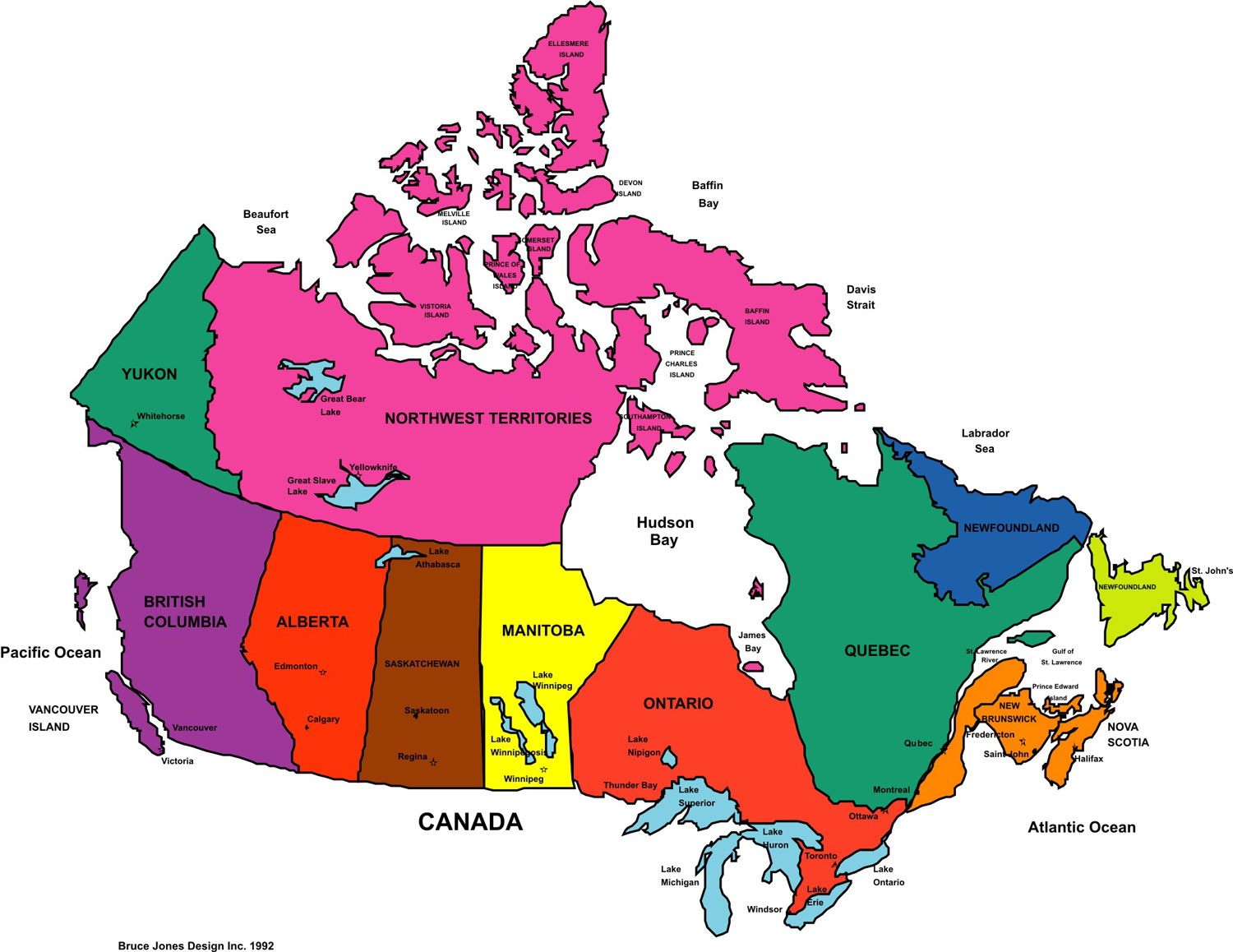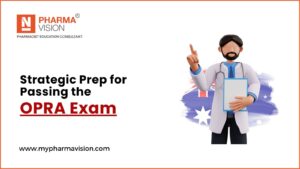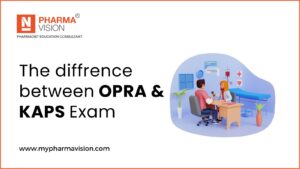Introduction
Choosing a study destination is a decision that can shape your future, and Canada stands out as a beacon of educational excellence, diversity, and opportunity. Renowned for its vast landscapes, multicultural cities, and a welcoming attitude towards international students, Canada offers a unique blend of high-quality education and life. There are several reasons that makes Canada an attractive destination for students from all corners of the globe.
Canada as a study destination
Geography
Geographically, Canada is the second-largest country in the world, with an area that spans six time zones. It boasts a varied landscape ranging from the rugged coastline of the Atlantic Provinces to the majestic mountains of the West. The vast central plains, the Great Lakes, and the Arctic tundra in the north make Canada a country of spectacular natural beauty and great geographical diversity.
Culture
Canada’s culture is as varied as its landscape, influenced by its indigenous peoples and a wide range of immigrants from around the world. This cultural mosaic is reflected in the music, literature, art, and food found across the country. Canadians are known for their politeness and inclusivity, fostering an environment where all cultures are celebrated and respected.
Spoken languages
The country has two official languages, English and French, with the province of Quebec primarily French-speaking. This bilingual environment not only enriches the cultural experience but also offers a unique advantage for students to become proficient in both languages.
Currency
As for the currency, Canada uses the Canadian dollar (CAD), which symbolizes the economic stability of the country. The strong economy is anchored by abundant natural resources, a robust banking sector, and a thriving technology industry, providing ample opportunities for graduates.
Provinces, Territories, and Key Cities
Canada is comprised of ten provinces and three territories, each with its own unique governance structure, culture, and economy.
| Provinces of Canada | Territories of Canada |
|---|---|
| Alberta | Northwest Territories |
| British Columbia | Nunavut |
| Manitoba | Yukon |
| New Brunswick | |
| Newfoundland and Labrador | |
| Nova Scotia | |
| Ontario | |
| Prince Edward Island | |
| Quebec | |
| Saskatchewan |
Popular Cities: Canada’s most populous and well-known cities include Toronto in Ontario, which is also the largest city in Canada; Montreal in Quebec, which is the second-largest city and a francophone metropolis; Vancouver in British Columbia, renowned for its scenic beauty and livability; Calgary in Alberta, known for its oil industry and the Calgary Stampede; and Ottawa, which is the capital city of Canada.
Capital of Canada: Ottawa, located in Ontario, is the capital city of Canada. It stands on the south bank of the Ottawa River and is the political heart of the country. Ottawa is characterized by its significant national institutions like the Parliament Buildings, and landmarks such as the Rideau Canal, which becomes the world’s largest ice-skating rink in winter.
In summary, Canada’s blend of high-quality education, diverse cultural landscape, and multilingualism make it an unparalleled study destination for international students. The reasons to study in Canada for higher education are as plentiful as the country is vast.
Reasons to choose Canada for study abroad
Canada offers an exceptional educational experience with a variety of benefits for international students:
- Affordable Education: Compared to other English-speaking countries, Canada provides quality education at reasonable costs.
- Quality of Life: Ranked third globally for quality of life, Canada offers a safe, inclusive, and vibrant environment for students.
- Global Recognition: Degrees from Canadian institutions are internationally recognized, opening doors to global career opportunities.
Education System of Canada for international students
For international students, the Canadian education system presents a structured and comprehensive range of study options, catering to diverse interests and career goals. Here’s a layer-wise overview of the educational offerings in Canada:
| Program Type | Description | Duration |
|---|---|---|
| Certificate Courses | Short-term programs focused on imparting specific skills for immediate employment or career advancement. | Varies Approx 1 year |
| Diploma Courses | 2-year programs offering practical and theoretical training for skilled work in various industries. | 2 years |
| Advanced Diploma Courses | 3-year comprehensive programs for deeper knowledge and higher employment opportunities, often bridging to university education. | 3 years |
| Postgraduate Diploma/Certificate Courses | Specialized 1- to 2-year programs for graduates aiming to gain advanced skills in their field for enhanced career prospects. | 1 to 2 years |
| Master’s Degree Programs | 1- to 2-year in-depth study and research programs designed for expertise in a particular field, leading to high-level professional and academic opportunities. | 1 to 2 years |
| Doctoral (PhD) Programs | Extensive research programs contributing new knowledge to a field, ideal for academic, research, or specialized professional careers. | Varies upto 4 to 7 years |
This streamlined structure allows international students to select a program that aligns with their career goals and academic background, all within Canada’s high-standard educational framework.
Educational institutions of Canada 🍁
Canada’s education system encompasses a variety of institutions that cater to a wide range of educational needs and preferences. Here’s an overview of the types of educational institutions found in Canada:
| Institution Type | Description | Focus |
|---|---|---|
| Universities | Universities in Canada offer undergraduate and postgraduate degrees, including bachelor’s, master’s, and doctoral programs. They are known for their research and academic excellence. Many universities also offer professional degrees in fields such as medicine, law, and engineering. | Academic and professional education, research. |
| University Colleges | These institutions provide a hybrid of university and college programs, offering both bachelor’s degrees and college diploma or certificate programs. They are ideal for students seeking a blend of practical skills and academic knowledge. | Combined academic and practical education. |
| Colleges | Colleges in Canada are known for their more practical, skills-oriented programs leading to diplomas, certificates, and applied degrees. They cater to a wide range of fields including technology, business, arts, and health sciences. | Career-oriented education, technical and vocational training. |
| Technical Institutes and Polytechnics | Specializing in advanced technical education, these institutions offer programs that are heavily focused on innovation, technology, and applied science. They provide training that is closely aligned with industry needs, preparing students for careers in engineering, information technology, and skilled trades. | Applied education in technical fields, closely aligned with industry needs. |
| Community Colleges | Community colleges offer certificate and diploma programs across a variety of subjects. These institutions focus on providing skills for employment, adult education, and transition programs for higher education. | Localized education catering to community needs, skills for employment. |
| Language Schools | Dedicated to teaching English and French as second languages, these schools cater to international students and new immigrants. They play a crucial role in helping students meet language proficiency requirements for university or college admissions and integrating into Canadian society. | Language acquisition, preparation for further education or employment. |
| Private Career Colleges | These are privately owned institutions that offer certificate and diploma programs in specific career fields such as business, health services, and information technology. They focus on providing job-ready skills in a short period of time. | Fast-track, job-oriented programs in specific career fields. |
Each type of institution has its unique offerings, catering to different student goals, from academic advancement and research to practical job skills and language proficiency. This diversity allows students in Canada to tailor their education paths to meet their individual needs and aspirations.
Top 10 programs for Pharmacy students to study in Canada
- Master of Science (MSc) in Pharmaceutical Sciences
- Master of Science (MSc) in Pharmacology
- Master of Business Administration (MBA) in Pharmaceutical Management
- Postgraduate Diploma in Pharmaceutical Management and Regulatory Affairs
- Master of Public Health (MPH) in Pharmaceutical Policy and Management
- Graduate Certificate in Clinical Research
- Master of Science (MSc) in Biotechnology
- Graduate Certificate in Pharmaceutical Regulatory Affairs and Quality Operations
- Postgraduate Diploma in Pharmaceutical Quality Assurance and Quality Control
- Master of Science (MSc) in Food Science
Top 10 educational institutes to study Pharmacy programs in Canada
- University of Toronto, Leslie Dan Faculty of Pharmacy
- University of British Columbia, Faculty of Pharmaceutical Sciences
- University of Alberta, Faculty of Pharmacy and Pharmaceutical Sciences
- University of Waterloo, School of Pharmacy
- McGill University, Faculty of Pharmacy
- University of Manitoba, College of Pharmacy
- Dalhousie University, College of Pharmacy
- University of Saskatchewan, College of Pharmacy and Nutrition
- Memorial University of Newfoundland, School of Pharmacy
- Université de Montréal, Faculty of Pharmacy
| University Name | Known For | QS Ranking 2023 | THE Ranking 2023 |
|---|---|---|---|
| University of Toronto | Research, Innovation | 21 | 18 |
| McGill University | Engineering | 30 | 46 |
| University of British Columbia | Teaching, Research | 34 | 40 |
| University of Montreal | Research | 141 | 111 |
| University of Alberta | Engineering, Health Sciences | 111 | 118 |
Overview of the licensing pharmacist exam in Canada (PEBC)
The Pharmacy Examining Board of Canada (PEBC) examination is a critical hurdle for international pharmacy graduates seeking licensure in Canada. It consists of an Evaluating Examination to test foundational knowledge, followed by a Qualifying Examination that assesses practical skills through multiple-choice questions and an Objective Structured Clinical Examination (OSCE). Successful preparation involves a strategic study plan focusing on PEBC-recommended materials, practicing with past exams, and enhancing communication and professional practice skills. Additionally, understanding Canadian pharmacy law and the healthcare context is essential. Candidates should prioritize well-being and manage their study schedule efficiently to ensure readiness for the examination. Early application and adherence to PEBC guidelines are key to navigating the licensure process smoothly.
For more guidance regarding PEBC examination you can visit www.mypharmavision.com
Cost of Education & cost of living in Canada for International Students
The educational expenses in Canada significantly vary based on the chosen field of study, the university, and the current tuition fees in canada, which are subject to yearly revisions by Canadian universities for all levels of study, including undergraduate and postgraduate programs. It’s essential for international students to ascertain the latest tuition fees from their prospective universities before proceeding with their applications. The following provides an overview of the average educational costs for different kind of courses in Canada:
| Stream | UG Course Average Fee per year | PG Course Average Fee per year |
|---|---|---|
| Medicine | CA$ 33,000 | CA$ 20000 |
| Pharmacy | CA$ 32,886 | CA$ 20000 |
| Engineering | CA$ 26,582 | CA$ 19000 |
| Architecture and related technologies | CA$ 22,100 | CA$ 20,000 |
| Nursing | CA$ 18,000 | CA$ 19000 |
| Mathematics and Computer Science | CA$ 25,000 | CA$ 19000 |
| Business Management | CA$ 23,500 | CA$ 20,000 |
| Law | CA$ 27,056 | CA$ 20,000 |
The average annual cost of living in Canada for international students typically spans from CAD 15,000 to CAD 20,000 (approximately INR 9.03 lakh to INR 12.05 lakh), influenced by individual lifestyle choices and spending habits. Additionally, the monthly cost of living in Canada for a single student is estimated at CAD 880 (about INR 53,034), excluding rent. Living in Canada can be quite economical and within budget, provided students apply prudent financial management strategies to live a better life in canada.
| Expenses | Cost (CAD) |
|---|---|
| Accommodation (shared apartments) | $400-$800 |
| Food | $300-$400 |
| Travel | $80-$110 |
| Entertainment | $150 |
| Other Utilities (electricity, cooling, water, heating, garbage) | $164.64 |
| Internet (60 Mbps or more) | $78.82 |
| Health Insurance (BC MSP Program) | $74 |
what is the procedure for study in Canada ?
Embarking on your academic journey in Canada begins with understanding the admission process and securing a student visa. This guide offers step-by-step insights into obtaining admission in Canadian institutions and navigating through the visa application process, ensuring a smooth transition to your new academic life.
Admission system for Indian students
Choosing the Right Institution and Program: Start by researching Canadian institutes and programs that align with your academic interests and career goals.
Understanding English Proficiency Requirements: Most Canadian institutions require international students to demonstrate proficiency in English through standardized tests like IELTS, TOEFL, PTE and Duolingo. Minimum score requirements vary by institution and program.
| Test | Version | Minimum Score Range |
|---|---|---|
| IELTS (International English Language Testing System) | Academic | 6.0 to 7.5 |
| TOEFL (Test of English as a Foreign Language) | iBT preferred | 95 to 120 |
| PTE (Pearson Test of English) | Academic | 60 to 93 |
| Duolingo English Test | – | 105 to 125 |
Document Checklist for Admission:
- Passport first & last page
- IELTS TRF / Test Date Confirmation
- SSC (10th) Mark-sheet + Certificate
- HSC (12th) Mark-sheet + Certificate
- School Leaving Certificate
- Diploma Certificate , All Mark-sheets , Transcript
- Bachelor Degree Certificate / Provisional Degree / Bonafide Certificate , Bachelor Degree All Mark-sheets , Transcript
- Master Degree Certificate / Provisional Degree / Bonafide Certificate, Master Degree All Mark-sheets , Transcript
- Backlog Certificate
- Work Experience – a) Updated Resume b) Experience Certificates c) Appointment letter d) Bank statement of Salary Account e) Salary Slips of Last 4 Months
- Letters of recommendation
- Statement of Purpose
- Resume/CV Portfolio
Intakes to Apply:
Canada primarily has three major intakes,
- Fall (September)
- Winter (January)
- Spring/Summer intake (May).
What is a Designated Learning Institution (DLI)?
To apply for a study permit, it’s essential to have an acceptance letter from a Designated Learning Institution (DLI), a school approved by a provincial or territorial government to enrol students. Almost all primary and secondary schools in Canada are DLIs, with only a few exceptions.
In canada for indian students Ensure that post-secondary school you plan to attend is on the list of DLIs. If your current school loses its DLI status while studying, you can continue until your permit expires. However, you might need to apply to a new DLI in other situations.
Admission Process:
- Complete the application form for your chosen institution.
- Submit all required documents.
- Pay the application fee.
- Await the admission offer. (General admission processing time is 4 to 8 weeks, but it may vary from college to universities.)
Fees Payment and GIC Expense:
Tuition Payment:
Upon receiving your admission offer, pay the tuition fee as per the institution’s guidelines.( Minimum 1 year of fees payment is required to submit the visa file.)
What is a Guaranteed Investment Certificate (GIC)?
For those applying for a study permit through the SDS program, obtaining a Guaranteed Investment Certificate (GIC) is mandatory. The GIC should be valued at CAD 20635 (approximately 12.50 Lacs) or the amount specified by Immigration, Refugees & Citizenship Canada (IRCC) for the designated arrival province updated in the year 2024..
For students applying for a study permit outside the SDS (e.g., for university or college programs), a GIC can also serve as proof of funds to cover living expenses for the first year in Canada. A GIC is a secure investment, similar to a fixed or term deposit, ensuring the full return of the original investment and earned interest within a predetermined and fixed timeframe.
Banks that offer GICs:
- ICICI
- Canadian Imperial Bank of Commerce (CIBC)
- SBI Canada
- Scotia bank
- Royal bank of Canada
- HSBC Bank of Canada
Medical Examination:
Undergo a medical examination by a doctor approved by the Canadian government. (Medical examination is valid upto 1 year)
Canada Student Visa Process
SDS and Non-SDS Visa Process:
Student Direct Stream (SDS) offers faster processing for students from certain countries, provided they meet additional requirements, including upfront medical examination, GIC, 1 year of tuition payment and the sufficient language proficiency requirement.
Non-SDS process is for those who do not meet SDS criteria or are from countries not eligible for SDS (Like those who do not meet upfront medical examination, GIC, 1 year of tuition payment and the sufficient language proficiency requirement.)
Final Document Checklist for Visa Application:
- Valid passport
- Educational Documents
- English proficiency test score
- Proof of GIC
- Acceptance letter from a designated learning institution
- Tuition payment receipt
- Digital Photo
- Medical Examination (IME) report
- Proof of financial support
- Statement of Purpose (explaining why you want to study in Canada)
Application fee payment receipt File Submission:
Submit your visa application online through the Immigration, Refugees and Citizenship Canada (IRCC) website or via a paper application.
Visa charges for study permit is total 235$ : 150$ (Study permit application fees ) and 85$ (Biometirc fees)
Biometrics Appointment:
Schedule and attend a biometrics appointment at a Visa Application Centre (VAC). Students can take the biometric appointments after completing final visa submission online by taking appointment in nearby VFS centers.
Final Visa Approval:
Await the decision on your visa application. If approved, you will receive a Passport request letter (PPR), Port of Entry (POE) Letter of Introduction and a temporary resident visa to enter Canada.
Postgraudate job opportunities for International students in Canada
Graduates have promising opportunities to stay and work in Canada, potentially leading to permanent residency. The job market is robust, especially in sectors like healthcare, engineering, and IT.
Typically, the PGWP eligibility criteria include, but may not be limited to:
- Graduating from a full-time program of study that lasted at least eight months at an eligible DLI.
- Applying for the PGWP within 180 days of receiving written confirmation (for example, a transcript or an official letter) from the educational institution that the applicant has met the requirements for completing the academic program.
- Having maintained full-time student status in Canada during each academic session of the program or programs of study completed and included as part of their post-graduation work permit application, with certain exceptions for leave from studies and final academic session.
Starting 1st September, 2024, changes to the Post Graduate Work Permit (PGWP) program will affect eligibility criteria. International students enrolled at Public-Private Partnership (PPP) colleges will no longer be eligible for the PGWP.
Conversely, graduates from Master’s and other short graduate-level programs will be eligible for a 3-year PGWP, moving away from the current program length-based criteria.
For more details, please refer to the official IRCC website.
Exploring Part-time work in Canada
While studying, students can work part-time on-campus or off-campus, including:
Students are permitted to work up to 20 hours per week during the academic term and full-time during breaks.
Examples of Part-time Jobs and Wages
| Job Title | Hourly Wage |
|---|---|
| Barista | $11.59 |
| Campus Ambassador | $10.94 |
| Receptionist | $13.31 |
| Sales Assistant | $20.00 |
| Department Assistant | $16.44 |
| Food Runner | $12.00 |
Key Employment Sectors
- Healthcare
- Real Estate
- Engineering and IT
According to the Bureau of Labor Statistics, the leisure and hospitality sector is expected to see significant growth, adding 1.9 million new jobs by 2031.
Student Population and Rankings
- Rapid Growth: The number of international students has tripled over the last decade, with significant contributions from Indian students.
- Global Rankings: Canadian universities regularly achieve high rankings globally, with seven institutions listed among the top 200 in the Times Higher Education rankings for 2023.
Scholarships and Financial Aid
Canada stands as an affordable option for international students, yet covering the entire cost of education can be challenging. To assist with tuition fees, students can apply for scholarships, for which academic performance often serves as a key eligibility criterion. A variety of scholarships are available to Indian students from both government of canada and non-government institutions.
The comprehensive list of scholarships available for Indian students in Canada, across various study programs.
There are three major types of scholarships in Canada for Indian students. They are:
- Canadian Government scholarships: These are scholarships that are offered by the government that allow international students to pursue their studies in Canada.
- Non- government scholarships: These scholarships in Canada are offered by independent, non-profit organizations, charities, and trusts for students who wish to pursue international education.
- Institutional scholarships: These scholarships in Canada are offered by particular universities and colleges for Indian students to do their studies.
Education Loans
Students can also consider education loans offered by banks and financial institutions to cover tuition and living costs.
Conclusion
Canada welcomes international students and offers world-class education, a welcoming environment, and numerous opportunities for personal and professional growth. With careful planning and preparation, students can make the most of their Canadian educational experience.
Securing admission and a student visa to Canada involves meticulous planning and preparation. By following the outlined steps and ensuring all requirements are met, you can embark on your academic journey in Canada with confidence. Remember, early preparation and adherence to guidelines are key to a successful application process.
FAQS
- Does the SDS Replace IRCC’s Regular Study Permit Stream?
The SDS is an accelerated option and does not replace IRCC’s regular study permit stream. Applications not meeting SDS criteria are processed under standard procedures.
- Which English Proficiency Tests Are Accepted Under the SDS Application?
The IELTS Exam is the accepted test for proving English skills under the SDS program.
- Why Should You Choose SDS Over Non-SDS?
SDS offers quicker processing times than non-SDS visa applications, providing priority processing.
- Is GIC Needed for Non-SDS?
No, a Guaranteed Investment Certificate (GIC) is not required for non-SDS applicants.
- Is SOP Required for the SDS Category?
Yes, a Statement of Purpose (SOP) is typically required for SDS applications.
- What is the Minimum SDS IELTS Requirement for Canada?
To qualify for SDS, an IELTS score of 6 with a Canadian Language Benchmark of 7 or higher is needed. A PTE Academic score of 60 is also required.
- Can SDS Applications Be Rejected?
Yes, failure to meet criteria like required IELTS scores can lead to SDS application rejection.
- Does SDS Accept General IELTS?
Yes, both IELTS Academic and General Training are accepted for the SDS program.
- Do We Need to Show Proof of Funds for an SDS Visa?
Yes, SDS applicants need a GIC and proof of funds of at least 20635 $ Canadian dollars.
- What is the Success Rate for an SDS Visa?
SDS applicants have experienced higher approval rates compared to non-SDS applicants.
- Can I Apply for SDS Without IELTS?
No, IELTS or other language proficiency tests are mandatory for applying through SDS.
- Do Canada Visa Officers Verify Bank Statements?
Yes, visa officers verify the authenticity of bank statements thoroughly.












